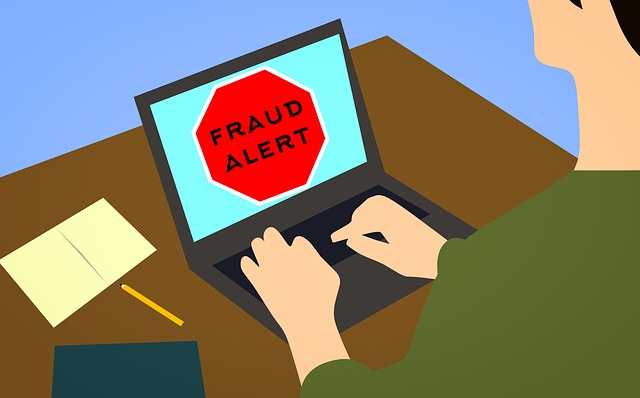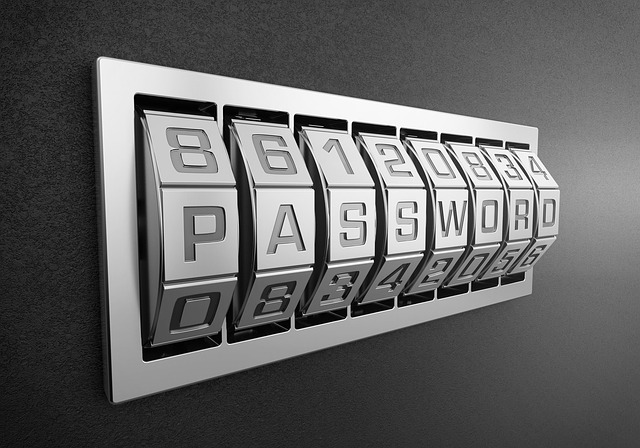This post will show you how to protect yourself from online fraud. Also, I will reveal 6 practical tips for staying safe on the internet.
The FBI’s Internet Crime Complaint Center (IC3) recently rolled out its 2020 Internet Crime Report. To say that the said report boasted several alarming findings would be an understatement:
For starters, it concluded that 2020 happened to be a record year in terms of internet fraud. The total losses amounted to a whopping $4.2 billion.
With the COVID-19 pandemic wreaking havoc worldwide, online scammers found an opportunity to target individuals and businesses. From pretending to be representatives of COVID-19 Aid Programs to those of Economic Security ones, scammers were able to obtain a lot of people’s hard-earned money last year.
With the pandemic showing no signs of going away anytime soon, cybercriminals are working 24/7 to overcome advanced security challenges. Now is the right time to learn how to keep yourself safe from online fraud.
But first, you need to understand what online fraud is:
Table of Contents
Online Fraud: What You Need to Know

Today, finding a guide that walks you through the essential cybersecurity tips for businesses or individuals is not hard. However, what caused people to start writing these guides? That’s correct; the surge in internet crimes did.
Online fraud or Internet fraud refers to utilizing Internet services to either steal money from victims straight away or trick them into paying a handsome amount in exchange for a non-existent or lackluster product/service.
READ ALSO: What Are Phishing Scams And How You Can Avoid Them?
Over the years, fraudsters have devised various ways to deceive people online.
Some of these ways are mentioned below:
- eCommerce fraud cases have only increased with time. This method involves the victim purchasing stuff from an online store which they never receive. Moreover, no refund or apt assistance is provided to the “customer.”
- Scammers have also mastered convincing people to give them credit or debit card information.
- After all these years, phishing or spoofing is still considered an effective way of hacking someone. For those unaware, this act involves a fraudster creating a fake login page (that appears to be associated with a credible website) to trick their victim(s) into sharing personal data such as passwords, security numbers, etc.
- And, of course, data breaches are still here. A breach occurs in light of an unwarranted leakage of confidential information.
6 Effective Tips that Help You Protect Yourself from Online Fraud
Now that you have read how common cyber crimes have become today and how scammers can use different methods to steal people’s money and identity, it’s essential to learn how to foil the fraudsters’ schemes.
Therefore, we’ve compiled a list of 6 effective tips that would come in handy in protecting you from online fraud:
1. Acknowledge the Existence of Online Scams
The first step in dodging online fraud is accepting that it exists. How many times have you received a text or mail claiming that you have won a certain amount of money in a lucky draw and will have to click on a “link” to proceed? That’s right, many times.
When someone you haven’t heard of approaches you with a life-changing offer, there’s a high chance that a scammer has set you as their target.
In such cases, do not just follow the instructions the potential scammer provides. Instead, hit the internet and look up the individual who contacted you or the business they claim to represent. Match the contact details and gauge the legitimacy of the offer sent.
READ ALSO: E-Commerce Fraud: Navigating the Challenges in Online Retail
2. Improve the Strength of Your Passwords

Yes, there are examples of people getting their accounts hacked due to setting weak passwords, such as their DOBs. Protect everything with a strong password, whether it’s your official PayPal account or a social media page.
Ensure that your password is over eight characters long and contains uppercase letters, lowercase letters, numbers, and special characters.
Additionally, never protect two or more accounts with the same password. Always use a different password for every website you have registered an account on.
3. Stay Alert of Phishing Attacks
As discussed above, phishing scams are pretty prominent in this day and age. Hackers take their time to craft login pages that look exactly like those of legitimate websites. The hacker receives this confidential data when you enter your email id and password in the appropriate fields on such pages.
To avoid falling into this trap, simply avoid clicking on any links or attachments sent by unknown people/businesses or use click fraud prevention software. Also, never open mysterious pop-up windows. That way, you can protect yourself from online fraud.
READ ALSO: How to Secure Your Mobile Devices: A Comprehensive Guide
4. Secure Your Gadgets and Internet Connection
Whether using a desktop, laptop, or smartphone, you are never safe from online fraud. Therefore, keep your gadgets secure from cyber threats by protecting them with credible security software. Additionally, it enables automatic updates so your security programs always remain equipped with the latest features and fixes.
It’s important to note that security concerns don’t end with your gadgets. You also have to keep your internet connection safe from different threats. You can do so by putting its accessibility behind a strong password.
Moreover, while using public Wi-Fi, ensure not to transmit critical and confidential information.
5. Rely on Encrypted Websites

A website that starts with “HTTPS” instead of “HTTP” is encrypted. In most cases, encrypted website URLs are accompanied by a lock icon. Even though not every encrypted site is safe to surf, such sites offer more security than their non-encrypted counterparts.
6. Enable Two-Factor Authentication
While a strong password does a good job of keeping your account safe, an extra layer of security never hurts. Moreover, fraudsters have devised many creative ways to steal passwords over the years.
This is where two-factor authentication strives to help you. The said security feature requires you to provide two authentication variables, i.e., a password and an access code you receive via text.
READ ALSO: Online Privacy Explained: What It Is, Why It’s Important, and How to Protect It
How to Protect Yourself from Online Fraud: Frequently Asked Questions
The internet offers vast opportunities, but also presents threats like online fraud. Here’s a compilation of frequently asked questions to equip you with the knowledge to protect yourself:
How can online fraud be prevented?
While complete prevention is impossible, a multi-layered approach significantly reduces your risk:
- Guarding Your Personal Information: Be cautious about your online personal information. Don’t disclose sensitive details like social security numbers or bank account information on unverified websites.
- Strong Passwords & MFA: Create strong and unique passwords for all your online accounts. Enable Multi-Factor Authentication (MFA) whenever possible to provide an extra layer of security.
- Beware of Phishing: Phishing emails and messages attempt to trick you into revealing sensitive information or clicking on malicious links. Don’t click suspicious links or attachments; verify the sender’s information before responding.
- Secure Your Devices: Keep your devices (computers, laptops, phones) updated with the latest security patches and antivirus software.
- Scrutinize Online Transactions: Shop only on reputable websites with secure payment gateways. When making online purchases, look for the https:// prefix and a padlock symbol in the address bar.
- Review Bank Statements Regularly: Monitor your bank statements and credit card reports for unauthorized transactions. Report any suspicious activity immediately.
- Beware of Public Wi-Fi: Avoid accessing sensitive information on public Wi-Fi networks. Consider using a Virtual Private Network (VPN) for added security if necessary.
How can you avoid fraud in online transactions by yourself?
Here are some practical steps you can take to secure your online transactions:
- Verified Websites: Only shop on websites with a verified reputation and secure payment gateways. Look for Trust Seals from established security companies.
- Credit Card Safety: Consider using a credit card for online purchases as they often offer more excellent fraud protection than debit cards.
- Scrutinize Payment Details: Double-check the recipient’s information and amount before confirming any online payment.
- Review Order Confirmations: Carefully review order confirmations and receipts for accuracy.
How can you protect yourself from fraud when you are shopping online?
Be mindful of these precautions while shopping online:
- Beware of Unbelievable Deals: If a deal seems too good to be true, it probably is. Don’t be lured by unrealistic discounts or pressure tactics.
- Research Before You Buy: Research unfamiliar online retailers before making a purchase. Read reviews and check their legitimacy.
- Save Receipts & Communication: Maintain copies of receipts and communication with the seller for future reference in case of any issues.
How can you protect your information from fraudsters?
- Social Media Privacy: Adjust your privacy settings on social media platforms to restrict access to your personal information.
- Beware of Public Sharing: Be mindful of what information you share publicly online, as this can be used for social engineering attacks.
- Beware of Free Downloads: Avoid downloading software or files from untrusted sources. These might contain malware that steals your information.
How to catch a fraud online?
While catching the perpetrator might be difficult for law enforcement, here’s how to identify potential online fraud:
- Unfamiliar Charges: Monitor your bank statements and credit card reports for unrecognized transactions.
- Suspicious Emails: Phishing emails often contain grammatical errors, generic greetings, and a sense of urgency.
- Requests for Personal Information: Legitimate businesses typically won’t request sensitive information via email.
- Deceptive Deals: Online offers that seem too good to be true are a red flag.
If you suspect online fraud, report it immediately to the relevant authorities and financial institutions.
Following these tips and staying vigilant can significantly reduce your risk of falling victim to online fraud and protect yourself in the digital world.
Conclusion
So, those are the 6 effective ways to protect yourself from online fraud.
While IT experts have been offering unbeatable security solutions to individuals and businesses, cybercriminals aren’t resting either. They have been putting in equal efforts to break into heavily-protected systems.
We are confident that the cybersecurity tips will help protect you from online fraud.
SUGGESTED READINGS
- Why Should Startups Use A VPN? [#4 ANSWERS]
- Security Alert: The Most Common COVID-19 Online Frauds and Scams
- What Next After Being Scammed Online?
- How To Report Online Scams In The UK [MUST READ]
- 5 Common Online Scam Tactics
- Scattered Canary: How A Nigerian Fraud Ring Hijacked Washington Unemployment System
About the Author:
Daniel Segun is the Founder and CEO of SecureBlitz Cybersecurity Media, with a background in Computer Science and Digital Marketing. When not writing, he's probably busy designing graphics or developing websites.
Meet Angela Daniel, an esteemed cybersecurity expert and the Associate Editor at SecureBlitz. With a profound understanding of the digital security landscape, Angela is dedicated to sharing her wealth of knowledge with readers. Her insightful articles delve into the intricacies of cybersecurity, offering a beacon of understanding in the ever-evolving realm of online safety.
Angela's expertise is grounded in a passion for staying at the forefront of emerging threats and protective measures. Her commitment to empowering individuals and organizations with the tools and insights to safeguard their digital presence is unwavering.


![How to Protect Yourself from Online Fraud [6 Surefire Internet Safety Tips] How to Protect Yourself from Online Fraud [6 Surefire Internet Safety Tips]](https://secureblitz.com/wp-content/uploads/2021/03/How-to-Protect-Yourself-from-Online-Fraud-6-Surefire-Internet-Safety-Tips.png)



